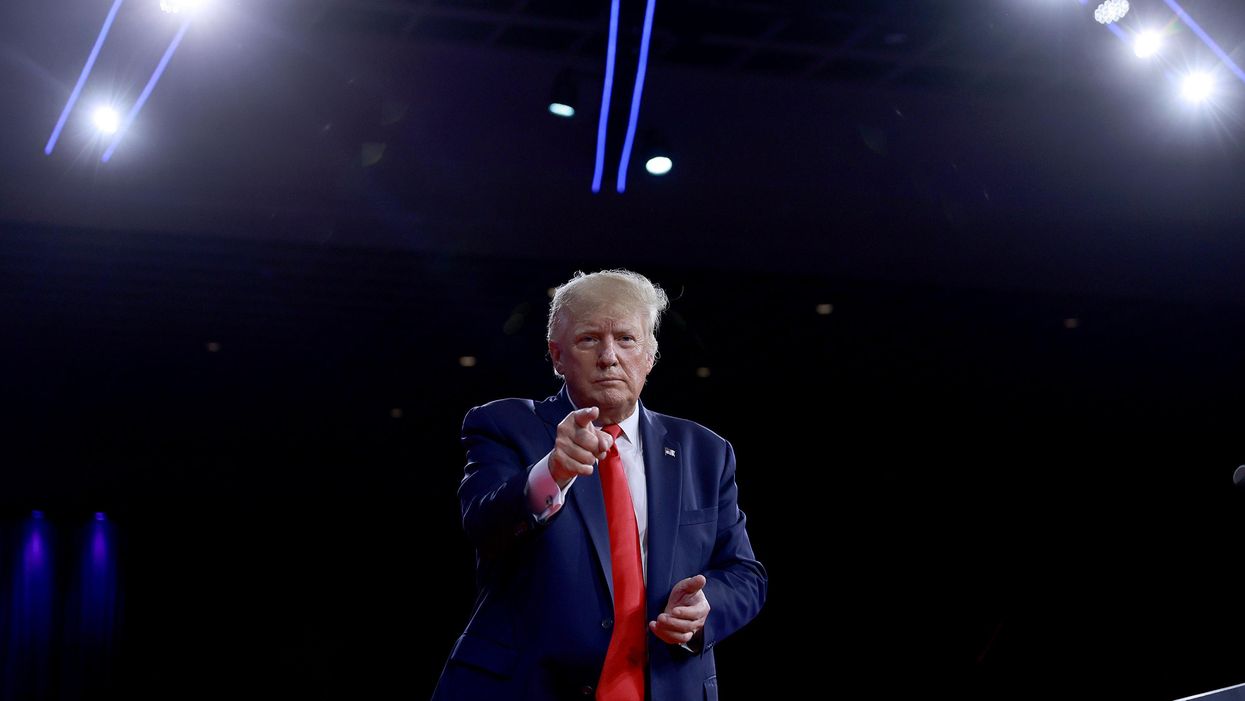Opdycke is president of Open Primaries, a national election reform organization. Gruber is the organization’s senior vice president.
Since the beginning of the year, legislation has been introduced in Missouri, New Hampshire, Idaho and Wyoming to close primaries outright or further restrict the ability of independent voters to participate. All four bills have been introduced by legislators loyal to former President Donald Trump, who formally endorsed the Wyoming legislation on Feb. 17. Other states are considering similar changes.
Trump and his acolytes are keenly aware that control of the mechanisms and rules of elections are a crucial component of influencing outcomes. Because the United States is one of only a handful of Western democracies with partisan election administration, they are working every angle: support secretaries of state and appointing local/state boards of elections and boards of canvassers loyal to their agenda; driving efforts to audit and overturn the 2020 results, as in Wisconsin; supporting and/or initiating voter suppression measures to depress turnout in Democratic Party strongholds. Now they are setting their sights on controlling who can and cannot vote in GOP primaries.
Trump wants closed primaries. That’s how he gets his people elected, and that’s how he regains power. Democratic Party leaders are unable or unwilling to stand up for the principle that publicly funded elections should be open to all voters because they themselves prefer to control who can and cannot vote. In fact one of the few reforms both Nancy Pelosi and Kevin McCarthy oppose are nonpartisan open primaries that allow every voter to participate on equal footing. “This is not a reform. It is terrible,” Pelosi said in 2018. That’s now stopping them from engaging an emerging, and highly destructive, Trump tactic to solidify minority rule by closing primaries and electing even more partisan actors who support his agenda.
This is a dangerous situation.
There is broad recognition that partisan gerrymandering has helped consolidate Republican control in red states — particularly over state government. To be sure, Democrats have been guilty of their own share of gerrymandering, most recently and egregiously in New York. Far less appreciated, and equally consequential, is that many of these Republican-dominated states have a combination of nonpartisan registration and/or open primaries that allow broad participation. With the Republican primary the only election that matters in these states, such rules have helped blunt an even more partisan slide.
That could change very fast. We have a former president with a ruthlessly efficient team of strategists, operatives and allies working to influence or manipulate every kernel of the election code they can get their hands on — nothing is sacred, nothing is out of bounds. And we have an opposition force that stands up for fairness in some traditional arenas, but not others. They fight tooth and nail to prevent restrictions on early or mail-in voting in areas where they compete, but sit silent while the GOP attempts to disenfranchise a third of all voters in Wyoming and Idaho.
Controlling the rules of primary elections is an efficient way to affect voter suppression. But the Democratic Party is compromised by its own partisanship, limited in vision by its own self interest. Over the years, dozens of resolutions to change party rules and open primaries have failed. In 2020 alone they were defeated in Florida and New York without so much as a floor vote.
We are in a pickle. So what do we do?
Two leaders offer inspiration as to a way out of this mess, one a Democrat and one a Republican. Jane Kleeb is the chair of the Democratic Party of Nebraska. She led an effort to open up Democratic state and federal primaries and she made it stick. Kleeb is the rare Democrat who insists that the Democratic Party needs to stand up for the voting rights of all — even people who don’t want to join the party. The other is Arnold Schwarzennegger. While governor of California, Schwarzennegger fought to enact nonpartisan primaries and nonpartisan redistricting. It wasn’t just that he won these reforms. It was how he won them. He insisted, in every speech, at every rally, that the political parties should not be in charge of the process, and that democracy doesn’t work unless it puts all voters first.
Make no mistake, Trump and his allies have their sights on the rules of primary elections. Let’s learn from Kleeb and Schwarzennegger, and fight to give every American full and equal access to them.


















 Senate Committee on Commerce, Science, and Transportation ranking member Sen. Maria Cantwell (D-WA) (R) questions witnesses during a hearing in the Russell Senate Office Building on Capitol Hill on February 10, 2026 in Washington, DC. The hearing explored the proposed $3.5 billion acquisition of Tegna Inc. by Nexstar Media Group, which would create the largest regional TV station operator in the United States. (Photo by Chip Somodevilla/Getty Images)
Senate Committee on Commerce, Science, and Transportation ranking member Sen. Maria Cantwell (D-WA) (R) questions witnesses during a hearing in the Russell Senate Office Building on Capitol Hill on February 10, 2026 in Washington, DC. The hearing explored the proposed $3.5 billion acquisition of Tegna Inc. by Nexstar Media Group, which would create the largest regional TV station operator in the United States. (Photo by Chip Somodevilla/Getty Images)
